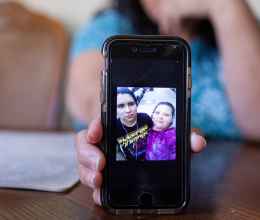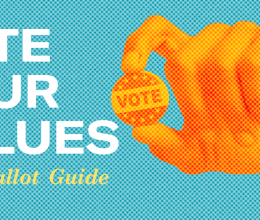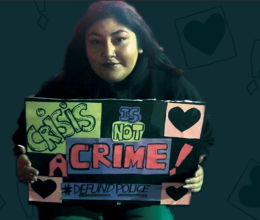
LOS ANGELES - Advocates and social service providers are distributing today to Los Angeles downtown's homeless population copies of the final order issued in federal court yesterday in the case Justin, et al., v. City of Los Angeles. The case deals with LAPD harassment of homeless people in the downtown area frequently referred to as "Skid Row." Twenty-three homeless individuals said that police had engaged in a widespread practice of harassment.
Judge Lourdes G. Baird issued a tentative order on Friday, December 1, and finalized the order on Tuesday, December 5. The order bars the city and the police from engaging in the following activities:
1. Stopping the homeless without reasonable suspicion while they are simply standing or walking on public streets and sidewalks, and not obstructing such streets or sidewalks;
2. Demanding production of identification on threat of arrest, and arresting individuals if no identification is procured;
3. Searching the possessions of those homeless without reasonable suspicion;
4. Ordering the homeless to move along from where they are standing unless they are obstructing or blocking the free passage of pedestrians;
5. Confiscating the personal property of the homeless when it has not been abandoned and destroying it without notice; and
6. Issuing citations to the homeless for loitering.
- Judge Lourdes G. Baird's order
"A legal victory is merely a victory for lawyers if things don't change on the streets," said Diana Gordon, one of the civil rights attorneys who brought the lawsuit at the urging of homeless advocates working downtown. "Through education and through continued advocacy this ruling will become a victory for the humanity and dignity of homeless people."
"This order is resoundingly clear," said Gordon. "It leaves no room for doubt about the illegality of the actions carried out against homeless people by the city and its police department and communicates that in language that both the homeless and the police will have no trouble understanding. The order also enjoins every single type of harassment cited by the individuals in the case."
Alice Callaghan of Las Familias del Pueblo and other advocates and groups are distributing the order. Callaghan and others are also establishing an informal system for gathering complaints should police violate the terms of the order, adding to the reproduction of the order a note urging homeless people to report complaints to Las Familias del Pueblo or to the Hippie Kitchen.
"Homeless people have civil rights," said Callaghan, "and the city and its police cannot abridge those rights simply because they consider the homeless to be bad for business or otherwise publicly troublesome."





